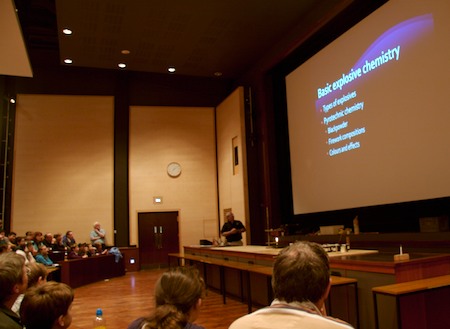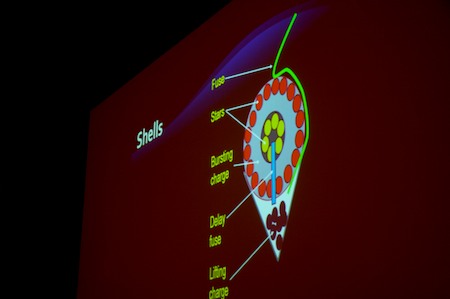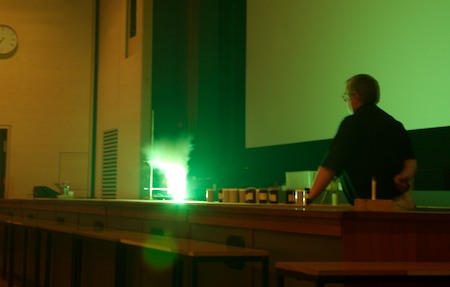Walmart are selling an Everex Linux-based PC for $199. That doesn’t include a monitor, of course, and their cheapest ones seem to be around $150, but anybody really hard up could find a much cheaper one on eBay or Froogle.
Location, location, location
I’ve been wondering how long it would be before somebody did this. I probably shouldn’t be surprised that Google got there first (at least, it’s the first example I’ve seen in a readily-usable form)…
Google Maps Mobile has a new feature called My Location which, if you have GPS in your phone, will pinpoint you on the map. That’s not the cool bit. The cool bit is that if, like me, you don’t have GPS built-in, it will use the nearby cell towers to estimate your position (typically to within a km or so).
Saves you having to spend a lot of time typing ‘Basingstoke’ when you could be appreciating its wonders…
Dial direct from your Mac
Ah, this is cute… at least for those of us who are Mac users and have an Asterisk server managing our phone systems…
AsteriskC2D is a utility that allows you to dial a number directly from Address Book. After you’ve configured it in System Preferences you can click on a number in Address Book and choose ‘Voip Dial’. Your Asterisk server will call you and, when you pick up the phone, will call the selected number.

There are also plugins for QuickSilver and OnMyCommand which allow you to highlight a number almost anywhere in any application, and dial it on a real phone system quickly and easily.
You do need some configuration on the Asterisk server which, like most Asterisk configuration, is not for the faint-hearted, but it’s worth it.
Proof of concept
This week we received the first bound proofs of Rose’s upcoming novel.

These are just review copies; the final cover will be rather different. But it’s the first time we’ve seen it in a proper binding, and the idea of it actually being on bookstore shelves suddenly seems a whole lot closer to reality.
Now I have to get back to proof-reading the sequel…
You can find out more about The Blackstone Key and pre-order it from Amazon on Rose’s site.
Lighten our darkness
CamVine is hiring!
Aha! You know things are really getting serious at CamVine now… we’ve just created an ‘Opportunities‘ page! Keep your eye on it!
The first post we want to fill needs somebody who really understands web applications and enjoys creating them, and who has excellent all-round software skills and IT interests.
I’ve been doing much of this development in the past, but I now have to concentrate on other things, so somebody else gets to do the fun stuff. Besides, we now need somebody really good!
Could this be you? More info here.
Freedom of speech and IP addresses in India
A man in Bangalore was arrested and put in prison because he posted some disrespectful pictures of an Indian national hero on Orkut. This particular hero died over three centuries ago, but I guess he could still be upset, if you believe in reincarnation.
Now, there are some worrying questions here about freedom of speech in India, but they’ve been somewhat overshadowed by the discovery that the chap in question didn’t actually do it. The authorities went to Google (Orkut’s owner) for information on the perpetrator of this heinous crime. Google duly handed over the IP address, so they then went to the ISP concerned, who told them the user of that IP address, and he was promptly arrested and put in prison.
Unfortunately, the ISP, Airtel, seems to have slipped up and given the wrong information. After three weeks, this was discovered, and Mr. Kailash was released. The police are saying it’s not their fault, and that he should sue his ISP. Many of us have been tempted to sue our ISPs for a variety of reasons, but wrongful arrest isn’t usually one of them!
Anyway, there are some interesting lessons here for people like me who are dreadfully lax when it comes to campaigning about privacy issues. I’ve always said that I could never be a good conspiracy theorist because I don’t have sufficient faith in the competence of most authorities to construct a decent conspiracy.
But perhaps it’s the incompetence, not the conspiracies, that I should actually be worried about!
Atlanta burning
My friend Brian Lemaster, whom some of my readers will know, left the world of technology a little while back to join his family’s lumber business in Atlanta, which was founded in 1946.
Last week, this happened:
Fortunately nobody was hurt. At least, not physically.
But that must be an experience he and his family won’t forget very soon…
My thoughts are with you, Brian!
How to give an excellent lecture
(As demonstrated tonight by Dr Tom Smith of Davas Ltd)
Start with a good opening slide:
This will help get the audience’s attention, if anyone turned up:
Explain clearly the theory behind your subject:
and reinforce your points, where possible, with some practical demonstrations.
Make them memorable.
Of course, if you chose the wrong career, say, accountancy, rather than firework manufacture and display, you may be at a slight disadvantage with some of these.
Understanding the numbers
A nice story from the Register – well, rather a depressing one really – about Camelot, the UK’s lottery operator, having to withdraw a recent scratchcard competition:
According to the Manchester Evening News, to qualify for a prize, punters had to “scratch away a window to reveal a temperature lower than the figure displayed on each card”. Sadly, as the card had a decidedly wintery theme, this initially-shown figure was often below zero.
…
Among these was Levenshulme’s Tina Farrel, a 23-year-old who admitted “she had left school without a maths GCSE”. She explained: “On one of my cards it said I had to find temperatures lower than -8. The numbers I uncovered were -6 and -7 so I thought I had won, and so did the woman in the shop.”
…
“I phoned Camelot and they fobbed me off with some story that -6 is higher, not lower, than -8, but I’m not having it.”
They had to withdraw the competition because rather large numbers of people had the same complaint…
Many thanks to Michael for the link.
Understanding subprime mortgages and strategic investment vehicles
John Bird and John Fortune explain what’s being going on in the world of finance for the South Bank Show…
🙂
Many thanks to Hap for the link
The King is Dead?
It had to happen eventually, but perhaps it really is beginning now… in Japan at least. PC sales are falling, according to this AP article.
I have always looked forward to living in a post-PC world.
The personal computer as we normally picture it has been such a successful model over the last quarter of a century that it has stifled quite a lot of innovation because many ideas, which might otherwise have exciting new tangible forms, are easier just to do on a PC. But as PCs become less of a focus, we should see new types of interaction becoming more common.
Mark Weiser’s famous article, “The Computer for the 21st Century“, talks about when core technologies become really powerful: when you don’t notice them any more.
The most frequently-cited example of this – highlighted by Don Norman – is the electric motor. There was a time when you could buy a ‘household electric motor’ and a range of accessories which would allow you to use it as a blender one minute, and a vacuum cleaner the next. But you know electric motors have become really significant as a technology when you start thinking of a washing machine as a washing machine, and a drill as a drill, rather than as incarnations of an electric motor.
Perhaps that’s what we’re starting to see in Japan.
Millions download music directly to their mobiles, and many more use their handsets for online shopping and to play games. Digital cameras connect directly to printers and high-definition TVs for viewing photos, bypassing PCs altogether. Movies now download straight to TVs.
More than 50 percent of Japanese send e-mail and browse the Internet from their mobile phones, according to a 2006 survey by the Ministry of Internal Affairs. The same survey found that 30 percent of people with e-mail on their phones used PC-based e-mail less, including 4 percent who said they had stopped sending e-mails from PCs completely.
Now, to be fair, it’s not clear that people are actually doing without traditional PCs, they just aren’t upgrading their old ones very fast.
But this is a start. One thing that characterises appliances like washing machines, at least for most of us, is that you replace them when you have to. You don’t buy a new one so you can boast to your friends that this years’ model has a higher-wattage motor.
This is not the end of personal computing. It is not even the beginning of the end. But it is, perhaps, the end of the beginning.
What fun!
© Copyright Quentin Stafford-Fraser







Recent Comments